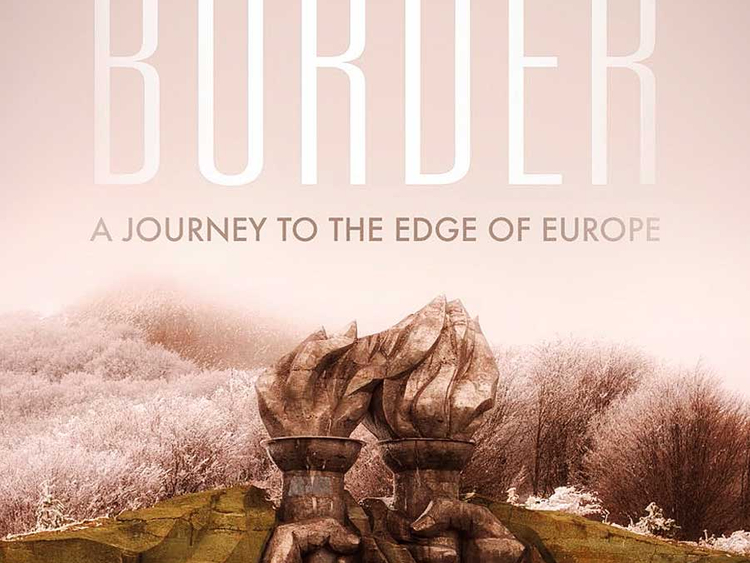|
|
Border: A Journey to the Edge of Europe |
By Kapka Kassabova, Granta Books, 400 pages, £12 |
Kapka Kassabova has written a marvellous book about a magical part of the world. In Europe’s southeastern corner, where Greece, Bulgaria and Turkey meet, modernity seems to peter out in the ancient forests. The low mountains that give the Balkans their name force most of the traffic between Europe and Asia to run either side of them, while providing shelter and sanctuary over the centuries in their secluded valleys, and not only to the bears and wolves that still roam them. Strange rites and superstitions survive, customs and beliefs that have vanished elsewhere.
Deep in the roadless uplands there are remote Bektashi temples, the remnants of that humane and mystical strain of Sufi Islam that accompanied the Ottoman armies centuries ago. High in the mountains of Thrace each August, crowds gather to watch the great wrestling bouts in the meadows.
Thirty years ago, when Bulgaria lay on the other side of the iron curtain, the easiest way into these mountains was from the south, a flight into Salonica and then the eastbound train that ran towards Istanbul. It rumbled slowly along the beautiful Nestos valley, curving inland away from the sea because that was how the Turkish sultan Abdul Hamid II had instructed the engineers when it was built. Eventually you would arrive at Xanthi, a quiet old tobacco town that had seen better days: the market did a lively trade in locally produced Ralph Lauren rip-offs. The Muslim quarter, its mansions largely unchanged since Ottoman times, climbed the hill behind the new town, and behind it, the road ran up into the Rhodope forests.
The first time I drove that way I thought it was perhaps the most beautiful part of Greece. The romance of it was, if anything, reinforced by the small military checkpoint that awaited anyone heading up to the Bulgarian border: throughout the Cold War, those remote valleys were a security zone that required a special pass to enter. Beyond the guards lay the steep green slopes where some of the finest tobacco in the world was grown, flanked by the dwellings of their Muslim farmers. Greece was by this time close to 99 per cent Christian but here they were Pomaks — Slavic-speaking Muslims who had reputedly converted from Christianity around the time of the Ottoman invasions, and their minority status seemed to reinforce their isolation. Once the car crested the rise, the dense forest dropped away and pencil-thin village minarets rose from hidden valleys far below. It felt like a Balkan Shangri-La.
Except that it wasn’t. The area was heavy with surveillance and suspicion. Not only were the tourists kept out, the local inhabitants were kept in. The only investment in infrastructure the region had seen for decades was military. The border, as everywhere along the iron curtain, exerted its malign influence. The region slept, but it was the sleep of nightmares and neglect.
Kassabova’s story starts on the other side of that border, over the hill in Bulgaria, and it is full of restlessness. It shows more starkly than anything else I have read what the border did to the people who lived along it, and how its legacy endures. Her journey was made recently, but the memory of the years of the Cold War remains strong in the minds of the people she lived with. They remember the soldiers and their officers, and the unfortunates who tried to thread their way southwards through the forest paths out of communism to the free world on the other side. She sees the initials of voyagers carved in trees, and her travels bring her into contact both with survivors of the perilous crossing, and with those who patrolled it and intercepted them, often with fatal results.
There was a hopeless irony bound up with those borders. The 20th century had been a time of fighting over land — the more land the better was the assumption. Yet by the 1960s, the villages either side of the iron curtain were haemorrhaging young people. Real land — even the most fertile — was losing its hold; depopulation was happening everywhere in Europe. Balkan states had made a special effort to ensure their border villages were well stocked: in earlier decades they had settled migrants there and tried to turn them into prosperous farmers — there were plenty of Cold War schemes to resettle abandoned villages with peasants from elsewhere. But with the exception of the tobacco growers, they mostly left for better jobs and an easier life down in the plains. Tourism transformed the coasts of Bulgaria and northern Greece. Ghost villages proliferated up in the hills. The only people happy to head for the borders were those trying to cross them. Kassabova is excellent on such ironies, which are rich in this area where states go head to head with nature, and nature usually ends up winning. As the villages age and decay, the forests thrive. Even the mines gradually decay; the massive bunkers that once guarded the mountain passes south into Greece are now crumbling.
Eco-tourism beckons, and Kassabova, a poet, writes lyrically and effectively about the astonishing natural beauty of much of the area. But she spends enough time talking to local people and hearing their stories to give us a real sense of the psychic dramas they carry with them as well. As the narrative unfolds, an undercurrent of menace creeps in, for this is an environment that does not spare the unlucky or the vulnerable. One detects in the background the trade in drugs and prostitution that now forms a sizeable part of the real economy in provincial towns blighted by years of neoliberalism and economic crisis. In the foreground are the refugees — Syrians, Kurds, north Africans — the latest in the long line of migrations that have swept over the area through the centuries.
In retrospect, the Cold War was a parenthesis, an oddity: people in those years were fleeing from north to south. They were coming in from East Germany, Poland and Hungary, but today, those countries are in the EU, the promised land, and the flow is the other way. The locals come across, for the most part, as astonishingly generous — as indeed are the refugees. And in many cases that is because the locals too were once refugees, caught up in one or more of the innumerable movements of populations that followed the collapse of the Ottoman empire nearly a century ago. For well over 100 years, western travellers have turned the Balkans into a land of exotic, larger than life, beliefs. Border offers the reader a large helping of strange inexplicable occurrences and compelling characters, but its author is engaged in something more personal and more engaging than most of her predecessors. Her origins, after all, lie in this part of the world, and her wanderings in the mountains are more a way for her to ruminate on the meaning of home than they are a source of fantasy. Or perhaps it would be better to say that home and fantasy start to blur, as she arcs across countries and centuries in an effort to free herself from the enchantment of this strangest of regions. In the end she leaves, but the spell remains.
–Guardian News & Media Ltd
Mark Mazower’s books include Inside Hitler’s Greece and The Balkans.










